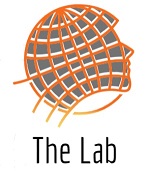UM Minor Sustainability | Project Sustainability
Course code: EBP2002 | Course Period: 3 | ECTS credits : 5
Coordinator(s): Oringer, Andrew (UCM); Turkeli, Serdar (MERIT);
Fleuren, Bram (PSYCHOLOGY) (2021-2024)
General introduction and the course:
In Project Sustainability (EBP2002), students apply the knowledge and skills they have gathered from previous courses of the Sustainability Minor to address an actual sustainability-related issue. By use of qualitative and/or quantitative approaches and indicators, students assess the problems and conditions related to the issue at hand. Students collaborate in small (interdisciplinary) groups to select and identify a topic of their choice. The course provides example issues, but also welcome students’ ideas on actual issues associated with sustainability. Groups elaborate on the identified problem, design ways of addressing it and assess the results of doing so with sustainability indicator(s). The final product of the project is a report and a presentation that describes the solution approach the students have designed.
Typically, topics that students consider are focused on a specific level within a system (e.g., individual, organizational, community, city, regional, national, global), and require considering multiple system levels simultaneously. Consequently, applying systems, multilevel, and design thinking is a crucial part of Project Sustainability.
As students will closely collaborate in this project, two core skills are developed: interdisciplinary teamwork and project management. Project Sustainability provides an opportunity to target actual sustainability issues, address them, and assess impact and conditions that lead to better sustainability conditions by students
Intended learning outcomes of the course (ILOs)
Students are able to…
ILO 1: identify, understand, and apply methods of sustainability assessment targeting various units of analysis at different levels within social-environmental systems and the interactions between them;
ILO 2: reflect on the suitability of sustainability assessment tools for analyzing different levels of systems;
ILO 3: deepen, integrate, and apply sustainability knowledge and understanding on a chosen topic of study;
ILO 4: critically reflect on the potential of interdisciplinary approaches to contribute to sustainability.
Prerequisites: All preceding courses of the UM Minor Sustainability
Links: Minor Sustainability – UM – Maastricht University
11 Outputs from AY 2021/22, AY 2022/2023, AY 2023/2024
Macro Level
How Blue Economy can help Small Developing Island States? | Final Report | Presentation
Sub-Saharan Migration flows to Europe in the light of Climate Change | Final Report | Presentation
Solar energy in Sub-Saharan Africa: How can the challenges that inhibit the implementation of solar power in Sub Saharan Africa be overcome? | Final Report | Presentation
Meso Level
On the Road to a Biodiversity Conscious EU Dairy Sector? The Cases of the Netherlands and Sweden | Final Report | Presentation
How to mitigate the impacts of wildfires in Portugal due to the forestry industry focusing on eucalyptus plantations? | Final Report | Presentation
Promoting Sustainability in the Luxury Fashion Industry: A Closer Look at the Biella Province | Final Report | Presentation
Wastewater Treatment in the Crocodile River in Mpumalanga, South Africa | Final Report | Presentation
Micro level
Investigating the relationship between Climate Anxiety and Consumer Behaviour in Students | Final Report | Presentation
Consumer Food Waste Behavior in the Netherlands, Households with Children | Final paper | Presentation
To what extent can the implementation of new Eco-labelling Standards reduce greenwashing practices in the EU fast-fashion industry given the uncertainty of customer behavior? | Final Report | Presentation
Sustainable employment of nurses | Final report | Presentation
—————————
[Updated 16/12/2024]



